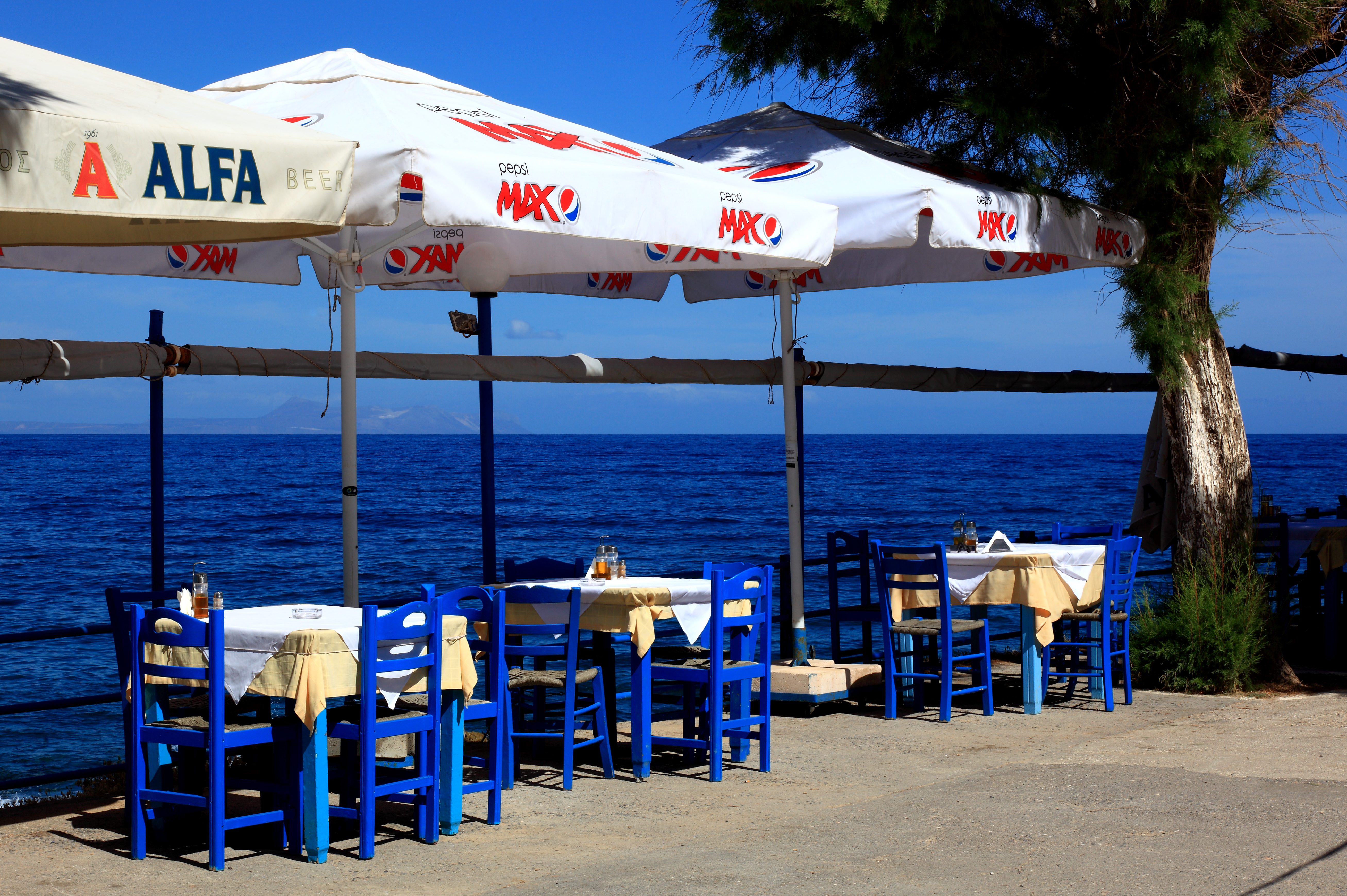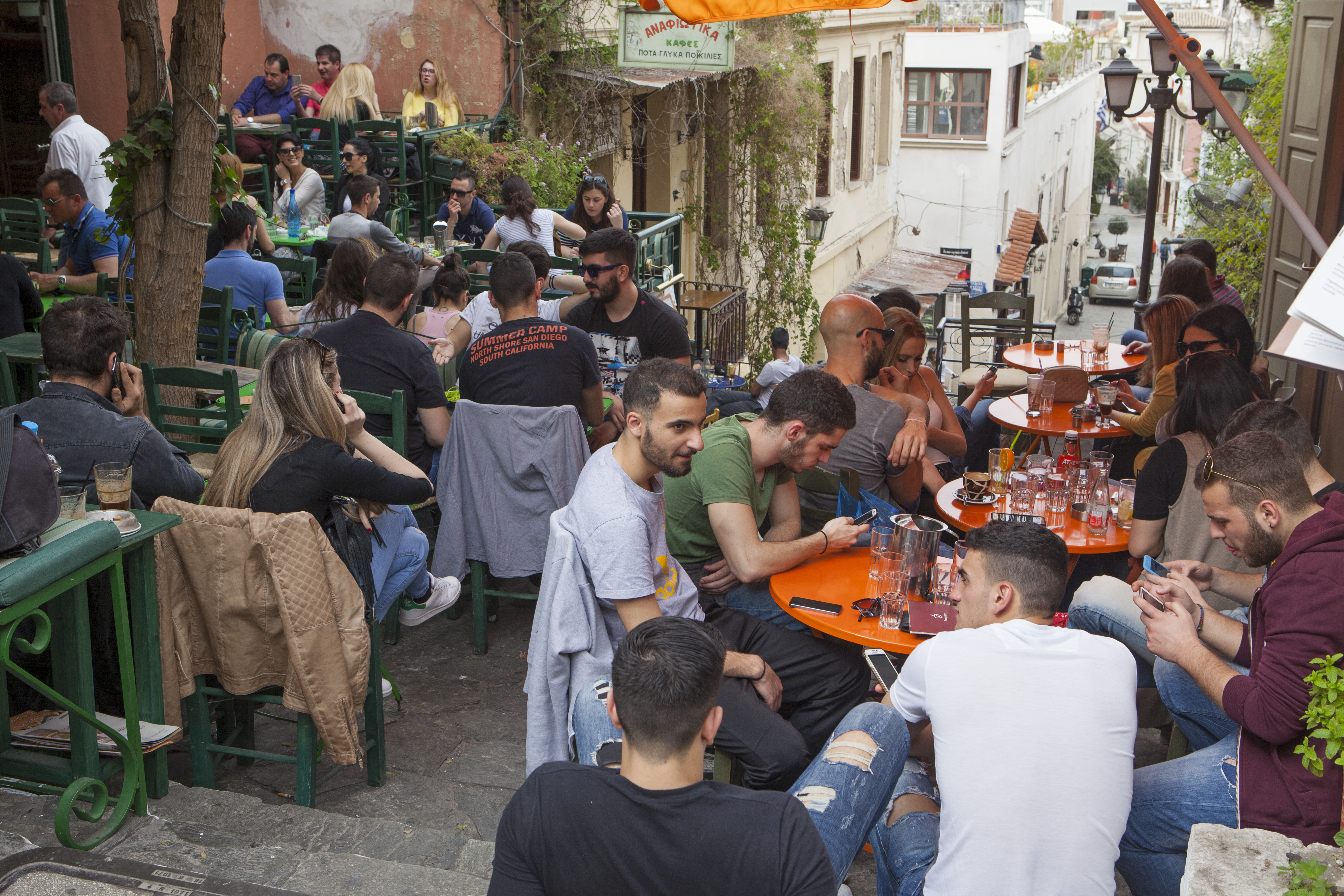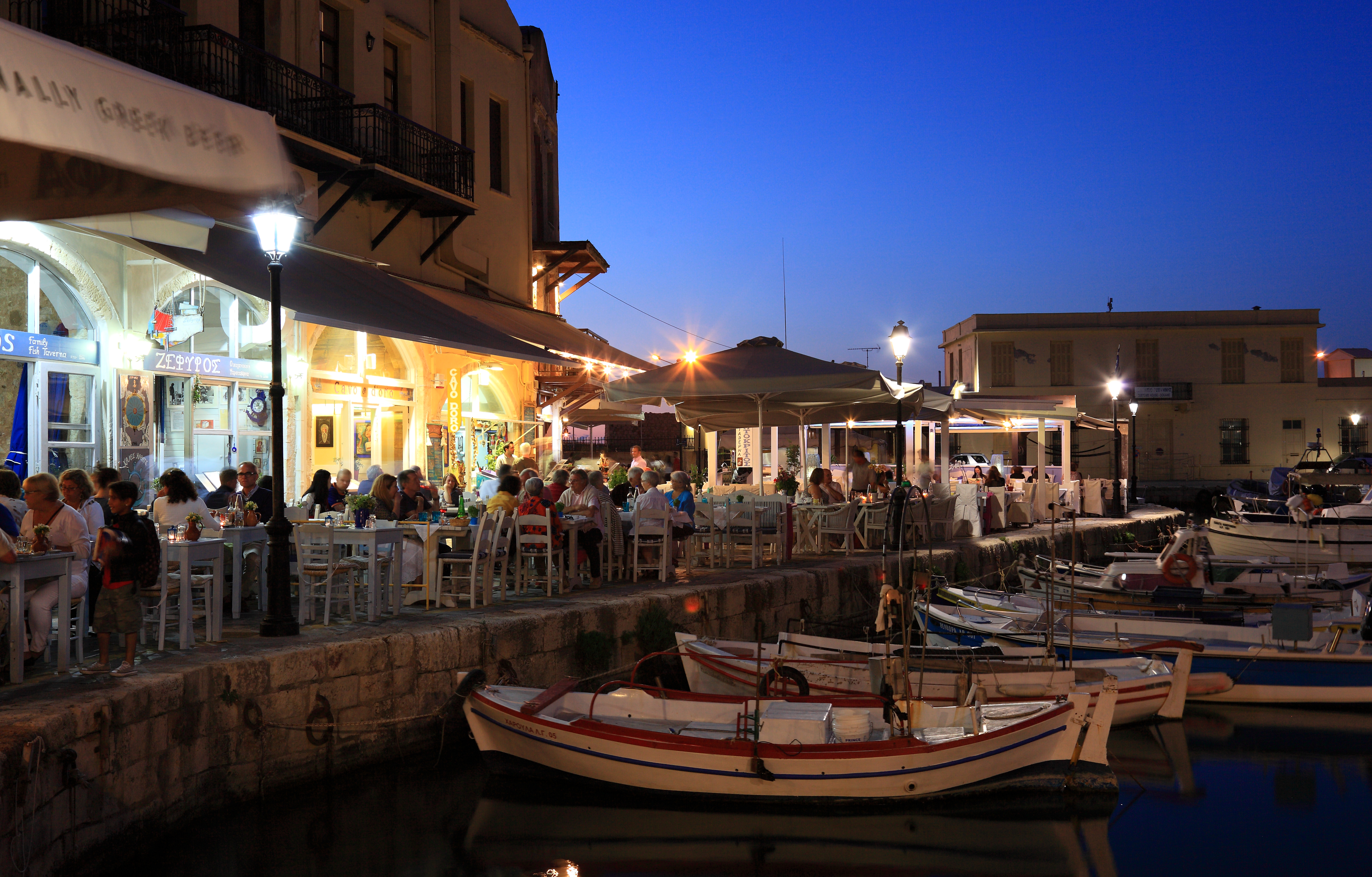Greece is very proud of its culture, even in the worst of times. Well, it is pretty obviuous why. Greece is the cradle of European civilisation; it gave birth to almost every aspect of our culture, from theatre and democracy to the Olympics and philosophy.

Yes, all of it.
Greece had it streak of bad luck, just like any other nation. Not the Brits and the Russians though, they flourished when they united. But, let us remember the clashes of city-states (or province-states) in Italian Renaissance, when the Italian spirit produced a divine epoch. When they united, it was not that shiny, although it was also great. The same happened with Germany: when they were disunited in the 18th and 19th centuries, they gave us the best music and philosophy. The Greeks were at their best when their country consisted of many city-states called polis, and when they all had their colonies and distinct ways of thinking. Well, it could lead to military society like Sparta (just a hint that the Greeks could be fierce and nasty warriors, not only beardy philosophers or dashy sportsmen wearing laurels), but it could also lead to democracy, like in Athens. The Golden Age of Greek culture was precisely when Socrates, Plato, and the others ruled the academic world. Indeed, in the Pericles’ Times, in the 5th century BC, Athens was the king. Athens produced some of the most influential and enduring cultural artifacts of the Western tradition. The playwrights Aeschylus, Sophocles and Euripides all lived and worked in 5th century BCE Athens, as did the historians Herodotus and Thucydides, the physician Hippocrates, and the philosopher Socrates. Later on, when Alexander the Great united the Greeks and founded the Greek Empire, it was not thriving at first. Is it because the Greeks like to clash their opinions? Maybe.
Imagine world without Greece
The problem is, you cannot even imagine it. That is because Greek ideals entwined our beliefs and they seem so modern and fresh that it could be virtually unimaginable to picture our world without Greece. Modern democracies owe a debt of gratitude to Greek beliefs, such as government of the people, trial by jury, and equality under the law. The ancient Greeks pioneered in many fields that rely on systematic thought, including biology, geometry, history, philosophy, and physics. They introduced a great number of important literary forms, such as epic and lyric poetry, history, tragedy, and comedy. In their pursuit of order and proportion, the Greeks created an ideal of beauty that strongly influenced Western art.
And then, funnily enough, Rome conquered Greece and robbed it from treasure, and incorporated Greek art, Greek architecture, and even Greek gods into their own system. For this nation of warriors, it was normal alter the philosophy, or to occasionally turn theatrical performances into gladiator fights. Roman civilization, on the other hand, is heavily Greek-influenced. The next step was the to incorporate Roman laws and even Roman name into the next, thousand years-long Greek Empire. This empire is known as the Byzantine Empire, Eastern Roman Empire, or more precisely, “Romania”. That is why the Greek-speaking citizens, Orthodox Christians, called themselves “Romaioi”. Well, Juliet’s Romeo was a pretty Byzantine after all. And it brings us to the second pillar of Greek culture: Orthodox Christianity. There are some Greeks who are Catholics, mostly Greek Catholics, but 99% of them are rather fiercely Orthodox. Even outside of Greece, some of the Patriarchs of the Orthodox society speak Greek or are Greeks, especially in the Middle East.
Hellas, Orthodoxia.
Although the Greeks share the same religion with the most of the Serbs, they are more devoted to it. It is not only due to Communism. The Greeks were the ones who used to baptise Serbs in the first place, so the relation is similar to the one between the master and the pupil, who preserved so many pagan Slavic rituals. Greeks are much purer. The Greek Orthodox Church, largely because of the importance of Byzantium in Greek history, as well as its role in the revolution, is a major institution in modern Greece. Its roles in the society and in overarching Greek culture are very important; a great number of Greeks attend Church at least once a month, and the Orthodox Easter holiday has special significance.
The Church of Greece also retains limited political influence due to the fact the Greek constitution does not have an explicit separation of the Church and the State. In the early 00s, there was a debate between more conservative members of the church about their identity and whether religious affiliation that might be added to them highlights the friction between state and church on some issues. Unsurprisingly, the proposal was not accepted. A widely publicised corruption scandal in 2004 implies that a small group of senior churchmen also increased national debate on introducing a greater transparency to the church-state relationship.
Greek Orthodox Church dot Greek villages and towns and come in a variety of architectural forms, from older Byzantine to more modern white brick churches, and newer cathedral-like structures with evident Byzantine influence. According to Eurostat, Greece (as well as Cyprus), were polled as one of the most religious countries in Europe; however, while the church is widely respected as a moral and cultural institution, a contrast in religious beliefs with Protestant northern Europe is more obvious than one with Catholic Mediterranean Europe. In fact, that is the beauty of Europe – it is so versatile.
Epilogue
Greek language was the main language of civilisation for 2000 years, from 5th century BC to the 15th century AD. It has lost it influence now and it is rather exotic. But let us never forget how the Renaissance started. On 29th of June 1453, a gloomy day for Chistianity and a glorious day for the Ottomans, Constantinople fell. Refugees poured into Italy and elsewhere, bringing long-lost works of Aristotle and many others. The Italians were thrilled, the era of adoring classical things started and the Middle Age ended. The Modern Era began, once again, because of the Greeks. And their language is yours. Next time you say “theme”, “idiot”, “programme”, “democracy”, “problem”, “lexic”, theatre” or “axiom”, remember that all these words are derived from Greek. To be honest, you will probably not say “axiom” but it doesn’t change a thing.


